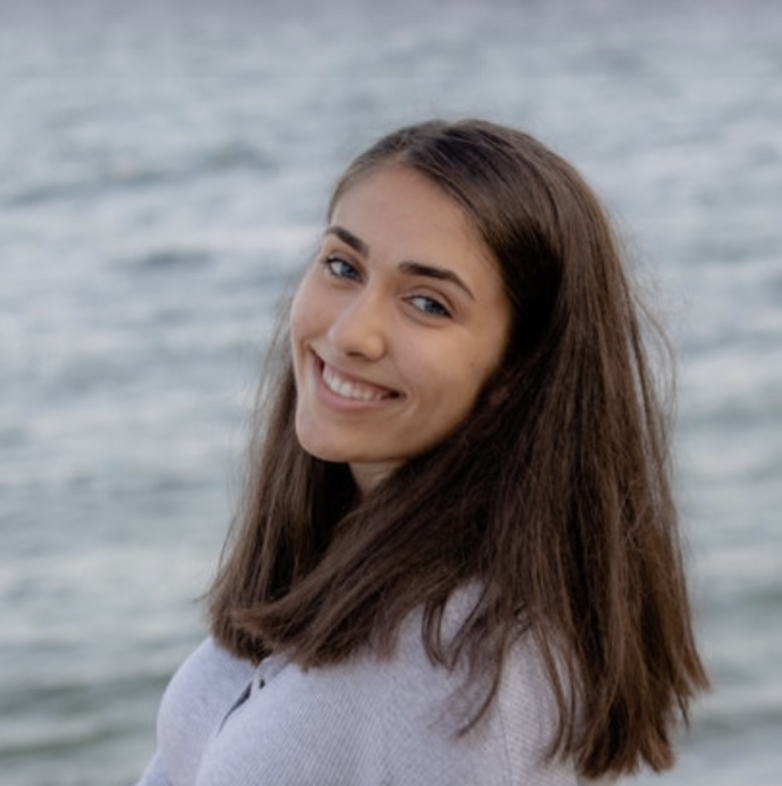Delia Donovan is an undergraduate student at Emmanuel College in Boston who is pursuing a bachelor's degree in political science with a minor in theater arts. She is involved with multiple groups and organizations on campus, including Law and Legal Studies Club, Emmanuel Theater, and Radical Hope. As someone with a passion for social justice and human rights law, she is dedicated to uplifting the voices and validating the experiences of women through policy change.
What was your experience of learning about female genital cutting (FGC) for the first time like?
I’m pretty sure I learned about it while I was watching a horror movie. It was depicted as a practice that was a barbaric form of torture. Of course, I was frightened and confused by it, but I had no idea that this was an inaccurate depiction of what FGC truly is, nor did I realize how common it was within certain communities. When I was applying to join Sahiyo, I had already known that the practice existed but I wanted to learn more, so I did some research. The prevalence of the practice around the world was astounding to me. Once I joined Sahiyo, I learned about the context of why FGC is performed in certain communities and how to address FGC in a culturally sensitive manner.
When and how did you first get involved with Sahiyo?
I discovered a Sahiyo Development Internship application on my college’s career search engine. I decided to do more research on the organization because Sahiyo’s cause piqued my interest. When I went on the website, I found out that they were also looking for a U.S. policy intern. Being a political science major, this internship seemed like a perfect fit for me!
What does your work with Sahiyo involve?
The policy internship is relatively new, so I’ve been helping my supervisors build up the internship program. I’ve been working on a policy internship guide, which lists all of the tasks that I have been doing as a policy intern, so that this document can be referenced by other policy interns in the future. I work closely with the CT Coalition to End FGM/C, since Connecticut is one of the 9 states that doesn’t have a law that criminalizes FGC; I take notes for every coalition meeting we have, and reach out to other organizations to encourage them to join the coalition or offer their support. My supervisors and I have also been working on a policy cumulative report, which lists all of the policy and legislative work that Sahiyo has done in the past. This project was started before I joined the organization, but we are continuing to finalize it and it should be done around January.
How has your involvement with Sahiyo impacted your life?
My time at Sahiyo has been extremely meaningful to me. On a career level, I have been able to witness all of the work that it takes for a non-profit organization to garner support for passing a piece of legislation. Since I’m studying governmental systems in school, I know how long it takes to get legislators to agree on passing a piece of legislation, but it has been so interesting to see this happen from the perspective of a non-profit organization because we are the ones who are doing the community outreach and educating the public. On a personal level, I have been so inspired by all of the survivors of FGC that I have come into contact with and all of their stories. It’s really admirable that they are so dedicated to Sahiyo’s cause of ending FGC, because I can imagine this work cannot be easy as a survivor. It could mean reliving trauma for many people and setbacks must feel fairly personal, yet they continue to stay motivated. It’s an amazing thing to witness. Also, everyone that I have interacted with has been so kind and understanding. We’re all constantly wanting to learn from one another and help each other grow.
What words of wisdom would you like to share with others who may be interested in supporting Sahiyo and the movement against FGC?
Just because you are not a survivor of FGC doesn’t mean you shouldn’t get involved in helping to end the practice. I myself am not a survivor, and when I was applying for this position, I was worried about overstepping or that I should have more knowledge and experience about the practice. However, it is important for people who aren’t survivors to spread awareness about FGC to communities who don’t know enough about it. Many of my friends and family have not undergone FGC and know very little about the practice, but through my education and experience at Sahiyo, I am able to teach people what FGC really is, why the practice is done, and how we can help stop it. FGC cannot just be an isolated issue in the communities that it affects, awareness needs to be spread much more vastly if we want to end the practice all together.

